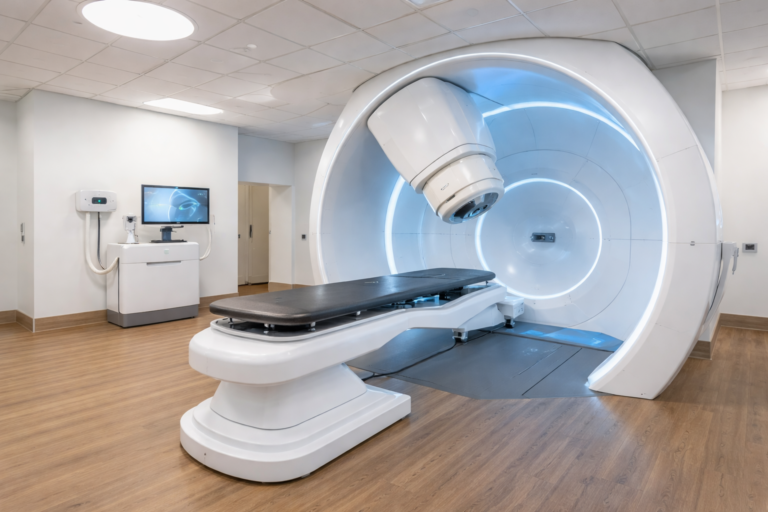
Seraph 100 May Reduce Tumor Particles in Blood Samples from Pancreatic Cancer Patients
A recent laboratory study has explored the potential therapeutic benefits of blood purification for patients with metastatic pancreatic ductal adenocarcinoma (PDAC), one of the most aggressive and fatal cancers. The research showed that ExThera Medical’s Seraph® 100 Microbind® Affinity Blood Filter (Seraph 100) selectively removes tumor-associated microparticles from the blood of PDAC patients. This selective filtration may provide a promising new approach for managing the disease and improving patient outcomes.
A recent study has expanded on previous research showing that the Seraph® 100 Microbind® Affinity Blood Filter (Seraph 100) can reduce circulating tumor cells (CTCs) in the blood of patients with pancreatic ductal adenocarcinoma (PDAC), one of the deadliest forms of cancer. This new research, conducted through a collaboration between Cedars-Sinai Medical Center, the University of Southern California, and the Keck School of Medicine, delves deeper into the filter’s impact on additional tumorigenic factors such as microparticles and soluble proteins, providing more insight into how blood purification may help treat metastatic PDAC.
The findings, published in Cancer Letters on ScienceDirect, highlight the potential of Seraph 100 to selectively target and remove tumor-associated microparticles and proteins from the bloodstream, in addition to its known ability to reduce CTCs. The study analyzed blood samples from seven PDAC patients, offering promising data that may open doors to a new therapeutic approach for managing this aggressive cancer.
ExThera Medical, the company behind Seraph 100, has expressed optimism about the results. Bob Ward, the Chairman and Founder of ExThera Medical, emphasized that while further clinical research is necessary, this study provides valuable insights into the potential of blood purification as a treatment for metastatic PDAC, a condition that remains highly challenging and difficult to manage.

Seraph 100 is an extracorporeal hemoperfusion filter that was initially developed to remove pathogens such as bacteria, viruses, and fungi from the bloodstream. Over time, research has demonstrated that Seraph 100’s broad-spectrum sorbent capabilities extend beyond pathogen removal, showing effectiveness in removing CTCs as well. The device has now been the subject of nearly 70 peer-reviewed publications, solidifying its potential in various clinical applications.
In this recent study, the researchers found that the Seraph 100 filter, when used ex vivo, was able to selectively remove key proteins and microvesicles from the blood of PDAC patients. The results suggest that the device may help reduce the burden of tumor-related particles in the bloodstream, which could have significant therapeutic implications for managing cancer and potentially improving patient outcomes.
The findings support the growing body of evidence regarding the Seraph 100’s utility across a range of serious conditions. The device’s efficacy in treating bloodstream infections, such as sepsis, and its emergency use authorization (EUA) for COVID-19 patients underscore its versatility and potential to impact patient care.
In addition to its use in cancer research, ExThera Medical has developed the Seraph 100 as a life-saving solution in cases of sepsis, COVID-19, and other severe bloodstream infections. The device has been used in the U.S., the EU, and the Middle East, and its success has been validated by independent clinical studies and health economic evidence. It has demonstrated life-saving capabilities, particularly for patients who are critically ill and face high-risk infections.
Despite the promising results, it is important to note that the Seraph 100 device has not yet been cleared or approved by the U.S. Food and Drug Administration (FDA) for any cancer-related indications. The device has, however, been authorized under an Emergency Use Authorization (EUA) for COVID-19 patients, allowing it to be used in certain emergency scenarios.
Looking ahead, ExThera Medical plans to continue expanding the clinical evidence supporting the Seraph 100’s use. This includes additional studies to further explore its impact on metastatic diseases like PDAC, as well as other areas where blood purification could offer therapeutic benefits. The growing interest and evidence behind the Seraph 100 suggest that it could play a critical role in advancing treatment options for some of the most challenging and deadly health conditions, including cancer and severe infections.
The latest study on Seraph 100 marks an important step forward in understanding how blood purification can be used in cancer treatment. The ability to remove tumor-associated microparticles and proteins from the blood of PDAC patients may offer a novel approach to combating metastasis, potentially providing doctors with a new tool to help treat one of the most difficult forms of cancer.
In conclusion, the ongoing research and clinical development of the Seraph 100 filter show great promise in offering new therapeutic options for metastatic PDAC patients. As ExThera Medical continues to build on this promising data, the potential for this innovative technology to change the landscape of cancer treatment remains a hopeful possibility. Further clinical trials will be essential to confirm its safety and efficacy across various indications, but these recent findings bring us one step closer to improving outcomes for patients battling advanced cancer.




